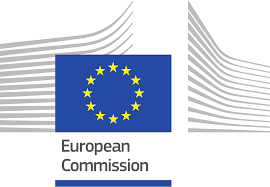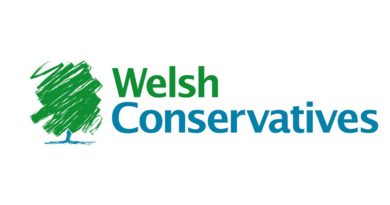PRESS RELEASE : Executive Vice-President Timmermans’ and Commissioner Sinkevičius’ remarks on the new legislative proposals: the Zero Pollution Package [October 2022]
The press release issued by the European Commission on 26 October 2022.
Executive Vice-President Timmermans
Onto our proposals to tackle pollution, to have less people die prematurely, and with which billions of euros can be saved.
The European Green Deal aims for an environment that’s free of harmful pollution by 2050. Because getting to climate neutrality is about more than pushing down greenhouse gas emissions. That’s why we call it climate neutrality and not just carbon neutrality.
To have a zero-pollution environment in 2050, we need to step up action today.
We have ample reason to do so.
Each year about 300.000 Europeans die prematurely as a result of air pollution. Many more suffer from lung diseases or pollution-induced cancers. So, this is also completely in line with our strategy to attack cancer and to make sure that we have a European policy on cancer. This is very dear as you know to our President.
Day in, day out, we get new information about the degree to which public health is directly endangered by pollution. Babies now have microplastics in their blood. And there’s PFAS in self-caught fish and homegrown vegetables.
The directives we are revising now are outdated, one even 30 years old. Scientific knowledge and technology have advanced, and we need to bring our legislation up to par.
Moreover, we pay for pollution.
With taxes, health, and human lives – we pay.
And the longer we wait to reduce this pollution, the higher the costs to society.
Today’s proposals tackle pollution at both sides: first we prevent, and when pollution does occur, those who created it should pay for cleaning up.
Let me give you a little more detail on each of the three proposals.
First, we need to bring our air pollution norms in line with the new WHO standards. Already now, this will take well over a decade to achieve. We will set stricter norms for fine particulate matter, or PM 2.5 – cutting the maximum allowed level by more than half by 2030. Air pollution standards to date have not been easily enforceable, so we’re also tackling this and ensuring there will be easier access to justice for those affected by poor air quality.
We also need to update our frameworks for water pollution and urban wastewater. The massive death of fish this summer in the Oder river shows how the combination of climate extremes and pollution can create tipping points for biodiversity.
In our proposals today, we add 25 new substances to the directive on integrated water management. They all have carefully calibrated limit values which stipulate maximum levels for substances that pollute our waters. These norms will also take into account combination effects, reflecting scientific progress.
On urban wastewater, we start to monitor microplastics release and create the European framework to routinely monitor pathogens like covid-19. This is something we have learned during the pandemic: wastewaters were a great indicator and a great way of pinpointing where we needed to be active to combat these pathogens.
So, we will provide rules to stimulate the recovery of crucial minerals and nutrients from sludge and make wastewater treatment plants a source of renewable energy. It is a good business model.
And we introduce the polluter pays principle. Right now, residues from pharmaceutical products and cosmetics cause 73% of pollution in urban wastewater. The costs of removing these are borne by water companies and ultimately of course by taxpayers.
Let me finish by emphasizing that a toxic-free environment demands that all related policies maintain and deliver the required level of ambition. A healthy, zero-pollution future is possible if we say goodbye to fossil fuels, move to clean mobility, sustainable agriculture, healthy diets, etcetera.
In the end, this is about protecting our health and that of the environment, against costs that are already borne by society.
And if we learned one thing from the pandemic, our citizens want us to do this. That is why the Commission today is delivering on this.
—–
Commmissioner Sinkevičius
Good afternoon everyone.
Today we took another big step forward for citizens’ health, health of our environment, sustainable development of our economy and for the European Green Deal.
As you know, this Commission has a zero pollution ambition, as part of the deal. We have already delivered half of actions foreseen in the Zero Pollution Action Plan.
But if we want to see pollution come down to levels that no longer harm human health or the environment, there is still a huge amount of work to do.
What we are presenting today has three major components, one to improve air quality, one to address freshwater quality, and one to modernise wastewater treatment.
Let’s start with the air.
This is an area where we have already seen major improvements thanks to EU policies. Nevertheless air pollution is still the largest environmental threat to our health and a serious challenge to our economies.
The impacts are worst for the most vulnerable ones, notably children, the elderly, people with certain medical conditions and the economically disadvantaged. It’s clear that we need to do more here, and that we need to act with determination.
What we propose is to set interim 2030 targets, to align EU air quality standards more closely with the recommendations of the World Health Organisation. At the same time, we are setting the EU on a trajectory to achieve zero pollution for air at the latest by 2050, through regular reviews of those standards to take into account scientific and technological progress.
When you add this revision to existing policies, the result will be at least 70% less premature deaths from bad air quality in the next ten years.
Nearly 300,000 Europeans die prematurely each year as a result of air pollution, so this is a huge number of lives we aim to save.
These new rules will be easier to enforce, and – very importantly – will provide citizens with strong tools to claim justice.
Because fresh air should not be something luxurious. It must be taken as a basic human right.
Thus we want to give citizens a collective right to claim compensation when their health has suffered as a result of laws not being enforced, for air and waste water.
At the same time we’re harmonising the rules for competent authorities, so that they can impose more dissuasive penalties against polluters who breach air quality measures at the national or local level.
We are also proposing to strengthen the rules for monitoring and modelling air quality, and improve the framework for air quality plans. And we are strengthening the way Member States need to cooperate in tackling cross-border cases.
As I said, this is good for human health and the environment.
And it will also relieve the economy of the cost burden from illness, lower productivity, loss of crop yields and damages to materials and ecosystems. The benefits are at least 7 times greater than the costs.
The second proposal is for freshwater.
Indeed, the incident in Oder river is a good example what can happen if you fail to protect a river from pollution in times of drought. Reducing pollution means making rivers more resilient.
Today it’s still a case that pharmaceuticals, pesticides and PFAS, the ‘forever chemicals’ can be found in Europe’s freshwaters, at levels that endanger the aquatic environment.
So we’re raising the standards for rivers, lakes and groundwaters, as part of our drive towards zero pollution.
Key changes include tackling new pollution threats by bringing their concentrations down to safe levels, introducing an early warning mechanism for water pollution, increasing the availability and transparency of pollution data and requiring Member States to alert each other about pollution events, avoiding situations like we saw with the Oder.
The benefits will be significant, for water, soil, and human health.
The third proposal is for a revision of a major piece of legislation, which has already brought enormous benefits to European citizens – the Urban Wastewater Treatment Directive.
What we propose will save energy and produce renewable energy, including “green” biogas, and reduce the sector’s emissions by almost fifty percent by 2040.
As a matter of fact, our goal is energy neutrality for the sector by 2040.
We’re also bringing in new rules to reduce micropollutant emissions, in line with the ones identified in the freshwater proposal.
And I want to stress what Frans already said – for two categories which typically reach freshwaters from waste water treatment plants – pharmaceuticals and personal care products – producers will be required to contribute to the cost of cleaning waste water.
That way we avoid taxpayers having to pay those costs in full.
High standards for air and water quality are wonderful. But on their own, they’re not enough. We have to make sure that they are implemented effectively on the ground.
So all three of these proposals share one common feature.
And that is, they all come with suggestions for improving their enforcement.
The result should be laws that are more effective, with what actually amounts to a reduction in the administrative burden for Member States.
Delivering zero pollution is not getting any easier in the geo-political context of today. But we cannot afford to be distracted. If we did start to deviate from our long-term path to zero pollution, the consequences would be very serious and very real.
Europe needs these improvements. Our citizens and science ask for them and so I’m very proud to put this proposal forward.
Thank you.



